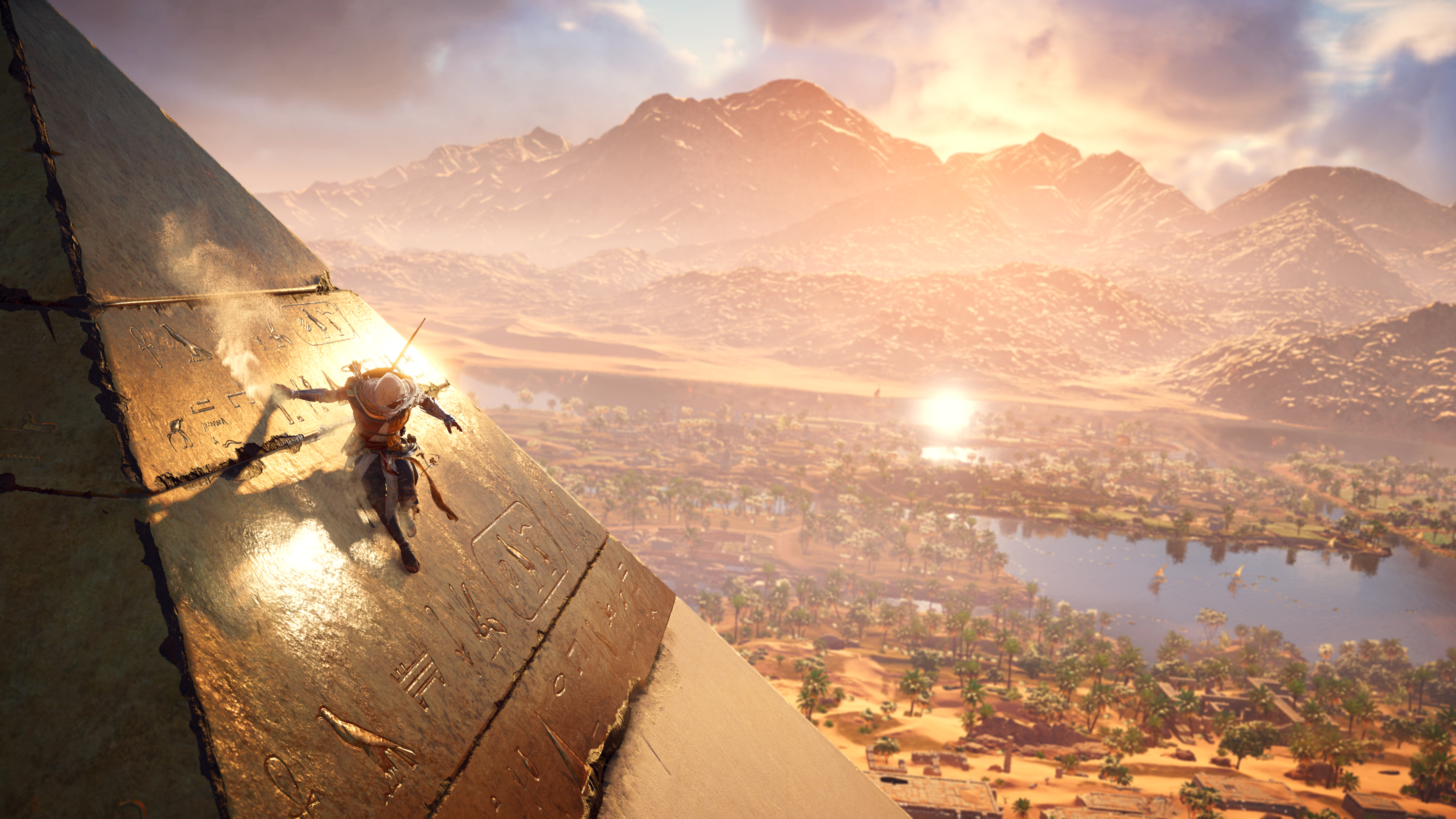The Secret History of Assassin’s Creed Origins
An historian from Ubisoft explains the challenges of reconstructing events more than 2,000 years in the past for Assassin's Creed Origins.
SEATTLE – Assassin’s Creed doesn’t just use history as a backdrop; it makes players feel like they’re really there. That level of detail doesn’t happen by accident.
After playing a new build of Assassin’s Creed Origins at PAX West 2017, I had a long talk with Maxime Durand, an historian for the long-running series. We discussed the game’s chaotic, historically rich setting – Ptolemaic Egypt – as well as the challenges of reconstructing events more than 2,000 years in the past.

First and foremost, the game has evolved considerably since I saw it at E3. Instead of a short combat mission, I got to explore the ancient city of Memphis in a narrative-heavy quest. I learned more about the protagonist, Bayek, and his lover, Aya, as they investigated the sacred Aphis Bull and rescued a young man from the clutches of a devout priest. I scaled the walls of ancient temples, swam past deadly Nile crocodiles and crossed paths with Cleopatra herself. In short, it’s Assassin’s Creed, but it feels more refined than before.
MORE: Most Anticipated Games
I last spoke with Durand just before the French-revolution themed Assassin’s Creed Unity came out in 2014. Tackling an adventure in early modern France, he said, was much easier than the team’s current challenge.
“If you go into revolutionary Paris, it’s much easier, because most of the landmarks are still there today,” he said. “With ancient Egypt, it’s a big challenge, because two of the biggest cities we have in the game don’t exist anymore.”
The game takes place in 49 BCE during the reign of Cleopatra, the last pharaoh. As such, players will get to explore Egypt from three perspectives: the traditional Egyptians, the ruling Greeks and the encroaching Romans.
Get instant access to breaking news, the hottest reviews, great deals and helpful tips.
“All of these places have unique flavors that show both the new ways and the old ways,” Durand said. “[The game is] creating a very rich and complex geopolitical system.”
Knowing the big-picture historical details helped flesh out the story, but creating the look and feel of the game was a much bigger challenge. Very little remains today of Greek Egypt, either in writing or in landmark structures. Even the climate was radically different.
“Egypt is much drier today than it was 2,000 years ago,” Durand explained. “They had a lot of irrigation. It was less urbanized; much more lush and green.” Indeed, as I explored the city of Memphis, I saw grass and flowers everywhere, and it wasn’t until I got way out into the desert that the landscape changed.
Durand and the developers have also used small details about daily life and religion to inspire both large quests and small aesthetic details.
“We have a lot of books that are accessible: This is how they butchered an animal, this is how they make wine,” he said. “These small details are the inspiration to create a world and to create missions that are centered on Egyptian beliefs at the time.”
The Apis Bull, for example, was a sacred animal that had been poisoned in the demo I played. “The Apis Bull was key to mythology in Egypt,” Durand said. “There is a national festivity for a week when he’s dying. No drinking, no sex, and everyone has to wear black.” The two sisters who kicked off the mission were wearing tons of smeared eyeliner. This is based on the actual behavior of Egyptian priestesses, who would force themselves to cry copiously in order to properly mourn the bull.
Of course, Assassin’s Creed Origins is a video game first and foremost, and some of the historical details are about creating a mood rather than reconstructing history. The Egyptian language that the villagers speak in-game, for example, is not really how ancient Egyptians would have spoken. The words are all accurate, but the grammar has been modernized, and spoken with accents inspired by modern-day Arabic and Hebrew.
The thing that struck me most about talking with Durand was just how much detail goes into creating a world for an Assassin’s Creed game. From consulting with Egyptologists to learning how to write with hieroglyphics, the team at Ubisoft seems committed to bringing the series back in style. Fans have been clamoring for an Ancient Egypt installment for years; with any luck, Origins will live up to their expectations.

Marshall Honorof was a senior editor for Tom's Guide, overseeing the site's coverage of gaming hardware and software. He comes from a science writing background, having studied paleomammalogy, biological anthropology, and the history of science and technology. After hours, you can find him practicing taekwondo or doing deep dives on classic sci-fi.
 Club Benefits
Club Benefits





